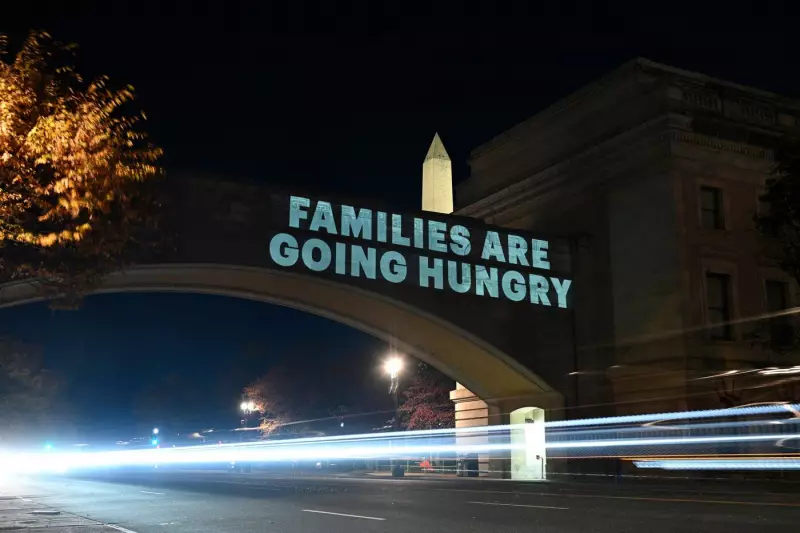
Political Clash Over Food Assistance Programs
Democratic leaders have launched a vigorous campaign against the Trump administration's recent decision to restore only partial funding to the Supplemental Nutrition Assistance Program. The controversy erupted in early November 2025 when the administration announced it would reinstate just fifty percent of previously allocated SNAP benefits, drawing immediate criticism from opposition parties and advocacy groups across the nation.
Visual Protest at Agriculture Department
The political tension became visibly apparent on Monday, November 3, 2025, when the National Women's Law Center projected a powerful message onto the facade of the U.S. Department of Agriculture building in Washington. The projection served as a stark reminder of the administration's controversial stance on food assistance programs that millions of American families depend on for their basic nutritional needs.
This dramatic display of opposition occurred as the Trump administration formalized its position on SNAP funding, setting the stage for what promises to be an intense political battle over social welfare programs. The partial restoration of benefits has left many wondering about the future of food assistance in the United States and how vulnerable populations will be affected by these policy changes.
Broader Implications for Social Safety Net
The decision to cut SNAP funding comes at a time when many American families continue to face economic uncertainty. Food stamp programs have traditionally enjoyed bipartisan support, making the current administration's move particularly significant. Democratic representatives have been quick to frame this as part of a broader pattern of undermining social safety net programs that protect the nation's most vulnerable citizens.
Advocacy groups like the National Women's Law Center argue that reducing SNAP benefits could have devastating consequences for low-income families, particularly those headed by single mothers. The organization's dramatic projection on the USDA building symbolizes the growing frustration among progressive groups with the administration's approach to poverty and hunger issues.
As the political debate intensifies, both parties are preparing for what could become a defining issue in upcoming legislative sessions. The outcome of this conflict over SNAP funding may well determine the direction of American social policy for years to come, affecting everything from poverty rates to public health outcomes across the nation.





